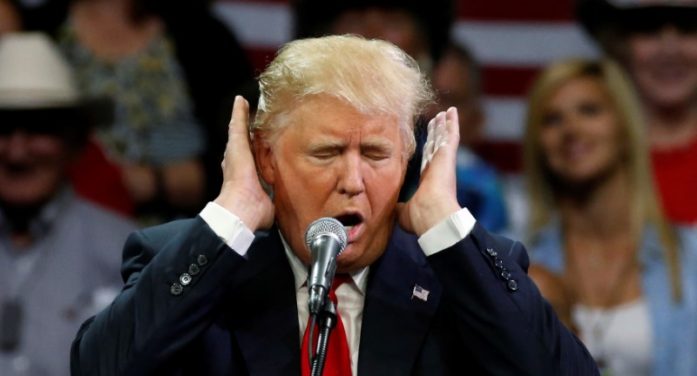2016’s Political Lesson, a New UN Boss, and Telecom Wars
Here’s What You Need to Know
Every political season comes with its own set of lessons to be heeded for all future campaigns, and this year’s may have been illustrated last week as Hillary Clinton and Donald Trump both had embarrassing private materials leaked to the public, hitting them on their most vulnerable points. The developments left many people asking how we got here. As Delve CEO Jeff Berkowitz recently noted, the stark difference in fallout from each leak shows how much of a difference good opposition research in a primary can make, and how, with good vulnerability research, campaigns can inoculate themselves from future surprise revelations.
So why did these two leaks produce such divergent results this past week?
- Political Primary Malpractice: The recent 2005 video of Donald Trump using vulgar and offensive language to describe his interactions with women has brought this electoral cycle full circle to its biggest failure, as outlined in a Medium post by Jeff after the tenth GOP primary debate in February. Because all of the other Republican candidates failed to prepare or use opposition research against Trump, it allowed the GOP nominee to enter the general election essentially unvetted. The Democrats and press were always going to dig into the nominee’s background, and allowing Trump to enter the fall so unprepared for these surprise revelations has directly led to the potency of this leak.
- Vulnerabilities? What Vulnerabilities? In the wake of this October surprise for the Trump campaign, many former and current Trump campaign advisers have come forward and discussed their repeated urging that the candidate undertake opposition research on himself to better prepare his campaign to respond to items exactly like this leak. The Republican National Committee even reportedly undertook its own vulnerability research on Trump, but claims the results “yielded nothing substantial.” This is political malpractice extraordinaire.
- Bernie’s Gift To Hillary: Aside from the obvious disparities in content, the leaked transcripts of Hillary Clinton’s paid speeches to Wall St. bankers failed to deliver any real shock to the Clinton campaign for the simple reason that voters had been hearing about the transcripts for the past six months. During the Democratic primary, Bernie Sanders repeatedly attacked Hillary Clinton over these transcripts, helping lessen the blow from the recent leaks. Most importantly, the entire Democratic establishment –including Bernie Sanders – knew long ago these transcripts could potentially disrupt her candidacy if leaked and were prepared to defend her when they did.
After the 2012 presidential election, many argued there was a lesson to be learned in how the brutal GOP primary process hurt Mitt Romney’s ability to defeat Barack Obama. But, when the 2016 cycle comes to a close, it may be the lack of rigorous vetting through opposition research during the primary that led to Donald Trump’s ultimate weakness, and ultimately one of the greatest failures of this election. For a more detailed breakdown of why these leaks played out so differently, check out Jeff’s Medium post here.
Subscribe to Receive Insights
"*" indicates required fields
News You Can Use
WHO REALLY CREATED THE GIG ECONOMY?
A new National Bureau of Economic Research working paper challenges the popular notion that the rise of the gig economy is a direct byproduct of the tech industry, suggesting instead that the change was more a function of the country’s sluggish transition into a post-industrial economy. The study, which examined data from 2005 to 2015, found that while the percentage of Americans working in gig economy jobs (i.e. contract work, on-call positions, freelancing, etc.) has risen from 10.7 percent to 15.8 percent, only 0.5 percent of all those workers were employed by digital platforms developed by tech companies. If accurate, the study raises serious questions about the state of the American economy and why so many workers are moving to the gig economy.
MEET THE NEW BOSS, SAME AS THE OLD BOSS
As U.N. secretary-general Ban Ki-moon’s term is set to expire in January, his replacement was elected last week – Antonio Guterres, a Socialist former prime minister of Portugal, was the unanimous choice of the 15-member U.N. Security Council. Guterres was known as a modernizer while prime minister, softening his Socialist party’s image in Portugal and closely aligning himself with British Prime Minister Tony Blair and other progressive European leaders. Guterres has spent time in the U.N. serving as the organization’s refugee chief during the recent Syrian refugee crisis, earning him the respect of many diplomatic colleagues. While outlining what his goals would be as secretary-general, he called for greater funding, alongside greater organizational efficiency, a call also made by many of his predecessors. Given the broad nature of those goals, plus Guterres’ reputation for shying away from unpopular decisions in his past political career, it seems unlikely his tenure will lead to any significant change within the U.N.
GOVERNMENT-CHOSEN HEALTHCARE
As health insurers consider leaving the healthcare exchanges created by Obamacare, the Obama administration plans to steer the affected policy holders to other insurance companies in the healthcare law’s markets in order to keep these customers from leaving the exchange along with their insurance companies. The plan calls for insurers and state regulators to barrage these consumers with a constant stream of reminders leading up to and during the 2017 sign-up season. Supporters of the administration claim the move will better inform consumers, but insurers worry if the government starts picking plans to promote, it could confuse consumers and create a backlash over the significantly diminished options.
2016: LESSONS IN DIGITAL MARKETING
Hillary Clinton’s presidential campaign sought to build the best digital campaign yet witnessed in the political universe. So with a few weeks left before Election Day, AdWeek spoke to some of the campaign’s digital team to see what they’ve learned during this bizarre electoral season. The staffers all said that the often vaunted practices of super-targeted advertising and ad bombardments don’t necessarily work in today’s online space. They also found that throwback photos are so popular they turned into campaign ads, and that brand hijacking, or taking an opponent’s line of attack and turning it into your own hashtag or website, yielded notably high online engagement. Overall, one of the most fundamental lessons the Clinton digital team seemed to learn was that the social media strategy doesn’t always need to have an agenda, different platforms reach different audiences, and depending on who that audience is, the message may or may not have anything to do with the campaign message of the day.
PEACE PRIZE WITHOUT THE PEACE
Just days after Colombian citizens rejected a peace deal negotiated between the government and the Revolutionary Armed Forces of Colombia (FARC), Colombian President Juan Manuel Santos was awarded the Nobel Peace Prize for negotiating the rejected plan. The successful campaign against the peace deal called for greater assurances that the former FARC militants would hand in cash from drugs, spend time in jail, and earn their political future through election rather than the guaranteed, unelected seats in Congress outlined in the peace negotiations. The Norwegian Nobel Committee, however, argued that the voters’ rejection does not necessarily mean the peace process is dead, and that despite the vote, President Santos has brought the conflict significantly closer to an end. Despite the Nobel Committee’s optimistic outlook, it remains to be seen whether the peace deal will actually lead to an end of the five-decade long civil war.
WHO FACT-CHECKS THE FACT-CHECKERS?
With a presidential election between two of the least trusted candidates in recorded history, the job of the fact-checkers is especially important. But, a closer look at how they have been conducting their duties this cycle reveals an implicit bias against one of the candidates. After last Sunday’s presidential debate, NBC’s fact-checkers appeared to go to great lengths to nitpick at semantics of Trump’s statements to find them false, and hardly fact-checked any of Clinton’s statements. There have also been several instances in which PolitiFact has found Trump’s statements to be false when they found similar statements made by other politicians to be true. It isn’t necessarily that the fact-checkers are just being unfair to Trump. The deeper problem is that by showing a clear bias in their process, it undermines the credibility of media fact-checkers at a time when so many Americans are looking for third-party validation of statements made by two candidates they simply do not trust.
CLASH OF THE TELECOM TITANS
A few weeks ago, Comcast chief Brian Roberts began the long-awaited convergence of the fixed and wireless broadband industries with the announcement that the company will be launching Comcast-branded mobile phone service next year. The bottom line for consumers is that the cable and wireless markets, both highly competitive industries, are merging to create even more competition – and thus, likely, more competitive pricing for both business sectors. For the businesses, the outlook is murkier. Wireless is clearly the future of connectivity, but given the growing prevalence of wifi (controlled by the fixed broadband companies), the big wireless providers may risk simply becoming wholesalers of basic roaming services for big cable and tech firms unless they can roll out effective 5G wireless. Either way, Roberts’ announcement is just the latest shot across the bow in the emerging cable-mobile wars.
Mark Your Calendars
Wednesday, October 19: Third Presidential Debate, University of Nevada, Las Vegas, NV



